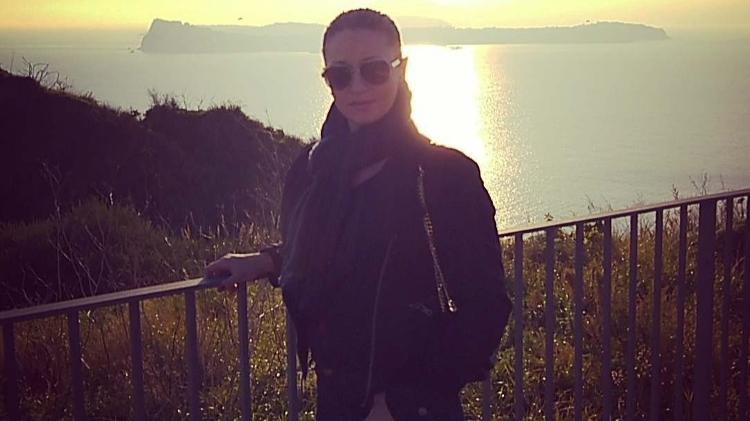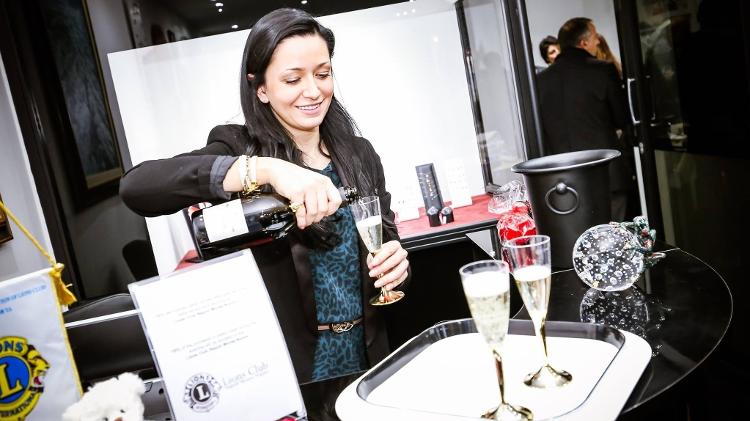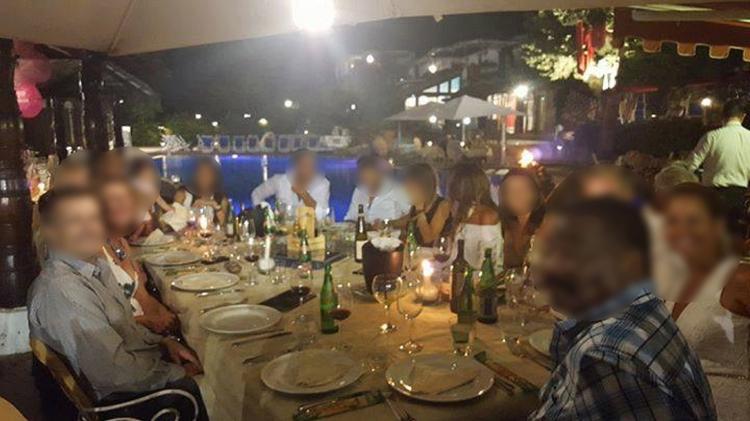María Adela Kuhfeldt Rivera, 30, was a socialite who resided in Italy but claimed to have been born in Peru to a German father. She posed as a jewelry designer in Naples she lived a life of luxury and was close to NATO (North Atlantic Treaty Organization) officials she. But investigations that emerged at the end of last week show that her real name is Olga Kolobova and that she is actually the daughter of a colonel in the Moscow Army and works as a Russian spy.
The revelation came this Friday (26), after ten months of work with Italian newspaper La Repubblica, investigative website Bellingcat, German magazine Der Spiegel and The Insider. According to the publications, the spy is described as “the hero of the most sensational intelligence operation carried out by Russia in Italy.”
According to the report, the Russian spy then managed to break into the social circles of Naples to infiltrate NATO base and US Navy Sixth Fleet personnel.
“The key feature connecting it to Moscow’s secret services is the Russian passport used to enter Italy: it belongs to the same special series used by military intelligence agents under the Kremlin,” La Repubblica says.
The spy was an undercover agent trained to pretend to be a foreigner, whom the intelligence community called “illegal”. Moscow’s intelligence agencies, known as the GRU, have been using “outlaws” since early Soviet times. As with Kolobova, it is common for them to continue to live under false identities for decades.
According to the tools, the whereabouts of Olga Kolobova is unknown since September 2018, when Russian spies tried to poison agent Sergey Skripal. The suspects were named by Bellingcat and The Insider, and through the article, the newspapers shed light on a vast network of spies run by Russian military intelligence.
On this occasion, Olga left the Naples region and set off for Moscow without leaving a trace. The suspicion was that his removal from Italy was due to fears that other agents with similar passport numbers might be discovered. However, two months after his sudden departure from Napoli, she made a post on Facebook stating that she had recovered from cancer.
According to the news of the British newspaper The Guardian, “Is it the truth that I have to explain at last? After chemotherapy, the hair now grows back, very short, but there. I miss everything, but I try to breathe,” he wrote. .
Peruvian citizenship
Doubts surrounding Rivera’s life began to rise. During the investigation, it was found that he had tried to apply for Peruvian citizenship in 2006, but the application was rejected and it was fake.
According to a letter from Peru’s civil registry received by Bellingcat, the official in the case requested additional proof of the woman’s birth. His lawyers also presented a baptismal certificate at the congregation of Cristo Libertador in Callao. According to the church document, baby Maria Adela was born on September 1, 1978 and was baptized two weeks later on September 14, 1978.
The official was not convinced, however, and approached the parish priest to confirm the information, who had worked at the institution since its founding in 1987, nine years after the Riviera’s supposed baptism.
In December 2006, the Peruvian Ministry of Justice reported in a report that the immigration and naturalization agency had detected three false citizenship applications in the previous year. Among the names was “Maria Adela”. At the time, the report concluded that the person’s identity was unknown and referred the case to the national prosecutor as a crime against public safety and faith.
Despite the refusal, the GRU insisted on giving the spy a Peruvian identity. Unusual for “outlaws” trying to hide their ties to Russia or the Soviet Union, the Riviera travels the world on a Russian passport, posing as “Kuhfeldt Rivera”.
Several people who knew “Kuhfeldt Rivera” said that his mother told the person who took him to the Soviet Union to participate in the Olympics in 1980, that he was Peruvian. However, her mother received an emergency call from Peru requiring her to return, and her daughter ended up staying in the country in the care of a family she befriended.
According to Bellingcat, he worked as a “leading expert” at Moscow State University and has lived at an address in the Russian capital since 2010. But current residents said they had never heard of him before.
It was precisely the name on the passport that led to the investigations surrounding the Russian spy. At the time, the GRU had issued passports to at least six spies, including an official involved in the poisoning of Sergey Skripal. Based on the proximity of the passport numbers and the date of issue, Bellingcat was able to determine the relationship between them.
There are still many gaps in the Riviera’s arrival in Europe. But the newspaper found that between 2009 and 2011 it was already present in cities like Rome and Malta, as it made posts on social networks that featured these places.
Riviera started in Malta to create a social circle with big European names. Marcelle D’Argy Smith, former editor of the UK edition of Cosmopolitan magazine, became close friends with her after meeting her in the summer of 2010.
D’Argy Smith told the publication that she was living with a boyfriend in the city at the time, but later moved to Ostia, near Rome, to take courses in gemology. She reportedly tried to get a German passport because she claimed to be the daughter of a German father, but she suddenly lost interest in the process.
The first international trips were recorded in October 2011. In addition to passing through the United Kingdom, she even traveled from Paris to Moscow by train. She registered her own jewelry brand in France. It was thanks to this “job” to gain access to the highest echelons of NATO’s Joint Allied Command in Naples.
Riviera even married a man she told her friends was Italian in 2012. In addition to her Italian passport, her husband held both Ecuadorian and Russian citizenship and was born in Moscow to a Russian mother and Ecuadorian father. She died the following year at the age of 30, she. The cause of death recorded on the death certificate was “dual pneumonia and systemic lupus”.
Despite the supposed tragedy, Riviera’s business seemed to have reached new heights. He started his own company in Italy and still sells luxury jewellery. For three years he became a prominent figure in the upper class. In addition to opening a jewelery boutique that later became a popular club, Riviera succeeded in fulfilling her purpose as secretary of a charity that was frequented by members of NATO’s command center, the Lions Club.
Italian newspaper La Repubblica reported that “the investigation was unable to reconstruct what information was obtained by the spy or whether his friends’ phones and computers were infected,” but “no Russian agent is known to have succeeded.” He was able to penetrate so deeply with senior NATO and US Navy officials”.
Investigations also noted that branded jewelry sold by Riviera appeared to be cheap jewelry purchased from Chinese online stores.
echo
After the report was published, the Russian embassy responded with an ironic cartoon posted on its social networks. The caption of the cartoon, which shows a man sitting on a bench looking suspiciously at the so-called spies surrounding him, reads, “If you’re seeing Russian spies everywhere, maybe you’re reading Repubblica too much.”
In a statement, the Italian newspaper countered, stating that “the Russian embassy in Italy is relying on a dark caricature to mock our investigation into the Kremlin’s espionage in Italy.”
“By identifying our readers with an image that sums up the most negative stereotypes about Italians. To answer legitimate questions about our citizen’s illegal activities, it would be preferable to receive commentary on our detailed disclosures from Ambassador Razov and his collaborators. Russian Olga Kolobova, also known as Maria Adela Kuhfeldt Rivera, and why Moscow is Italy.” what if he devotes so much resources to spying,” La Repubblica said in a statement.
For Enrico Letta, former Italian prime minister and Democratic Party (PD) secretary, “La Repubblica’s statements about Russian espionage activities in Italy are very serious” and “the Russian embassy should respond rather than react.” In an unacceptable way as expressed today”.
source: Noticias



